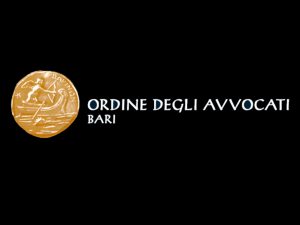Erfrecht, nalatenschap en testament
Spanje kent een andere wetgeving dan Nederland. Goed om te weten wanneer u in Spanje gaat wonen en u daar wilt trouwen en kinderen krijgen. Maar ook minder leuke zaken als echtscheiding en alimentatie zijn anders in de wet geregeld dan in Nederland. Wel zo prettig dat u hierbij dan ondersteuning kunt krijgen van de Nederlandssprekende adviseurs van Gimbrere Legal.
En wat moet u doen bij een sterfgeval in de familie in Spanje? Hoe zit het met de nalatenschap, erfrechten en het opmaken van een testament? Wat als u zelf erfgenaam bent? Allemaal vragen waar u mee te maken kunt krijgen. Bij Gimbrere Legal bent u voor de antwoorden hierop aan het juiste adres.
Bezittingen in meerdere landen
In Nederland hebben grootouders een vakantiewoning en in Luxemburg nog wat geld op de bank. Wanneer zij komen te overlijden komen hun erfgenamen vrijwel zeker voor de vraag te staan: welk recht is van toepassing op de vererving? Het toepasselijk recht op de vererving hoeft niet per se het recht van de nationaliteit van de erflater te zijn. Wanneer de erflater immers geruime tijd voor zijn of haar overlijden in het buitenland woonachtig is geweest, kan ook het recht van het land van de laatste gewone verblijfplaats van toepassing zijn. Kortom, een vraagstuk waar Internationaal Privaatrecht bij om de hoek komt kijken.
In Nederland hebben grootouders een vakantiewoning en in Luxemburg nog wat geld op de bank. Wanneer zij komen te overlijden komen hun erfgenamen vrijwel zeker voor de vraag te staan: welk recht is van toepassing op de vererving? Het toepasselijk recht op de vererving hoeft niet per se het recht van de nationaliteit van de erflater te zijn. Wanneer de erflater immers geruime tijd voor zijn of haar overlijden in het buitenland woonachtig is geweest, kan ook het recht van het land van de laatste gewone verblijfplaats van toepassing zijn. Kortom, een vraagstuk waar Internationaal Privaatrecht bij om de hoek komt kijken.
Internationaal Privaatrecht is de verzamelnaam voor een scala aan verwijzingsregels opgenomen in verdragen, verordeningen en wetten. Wij hebben kennis van zowel het Nederlandse als het Spaanse Internationaal Privaatrecht en zijn u graag van dienst bij eventuele vragen. Ook als u wilt weten hoe u een en ander het beste kunt regelen voor later dan staan wij u graag ter zijde.
Verschil Spanje en Nederland
Het erfrecht is een moeilijk en belangrijk rechtsgebied. Het is daarom van groot belang dat u als Nederlanders in Spanje goed op de hoogte bent over dit onderwerp. Maar ook over aanverwante zaken als testamenten en successierechten.
Wij kunnen u adviseren over successierechten in Spanje én Nederland. En welke aanpassingen wenselijk zijn in een bestaand testament. Eventueel maken we voor u een (tweetalig) testament naar Nederlands erfrecht, voorzien van een apostille van de Rechtbank.
Verschil Spaans en Nederlands Erfrecht
Welk erfrecht is nu eigenlijk van toepassing? Dat van Nederland, dat van Spanje of van beide landen? En wat zijn precies de verschillen tussen Nederland en Spanje op het gebied van erfrecht. Laat u adviseren door onze advocaten of lees meer over de verschillen tussen het Spaans en Nederlands erfrecht.
Gimbrere Legal adviseert u over erfrecht, successierechten en testamenten.
Erfbelasting
U erft iets van iemand in Spanje. Wanneer moet u in Spanje dan erfbelasting betalen? U moet erfbelasting betalen indien er sprake is van in Spanje gelegen goederen. Bijvoorbeeld een woning of een bankrekening, ook al wonen de erfgenamen in Nederland.
Voor erfgenamen die in Nederland wonen hanteert Spanje het nationale tarief. De Spaanse erfbelasting moet u binnen 6 maanden na overlijden betalen. Uitstel is mogelijk maar het verzoek hierom moet u binnen 5 maanden na de datum van overlijden indienen. Dit kunnen wij voor u aanvragen. Ook kunnen wij om betaling in termijnen verzoeken.
Nalatenschap
De erfrechtadvocaten van Gimbrere Legal adviseren bij de afwikkeling van de nalatenschap van Nederlanders in Spanje. Verwerpt iemand een nalatenschap? Ook daar kunnen de advocaten van Gimbrere in bijstaan. Zij weten precies welke stappen u moet nemen.
Een nalatenschap in Spanje kan voor Nederlanders (in Spanje) vaak problemen opleveren. Men is vaak niet bekend met de Spaanse wetgeving en niet op de hoogte dat men in de meeste gevallen in Spanje erfbelasting moet betalen.
Legitieme
De Spaanse notarissen begrijpen op hun beurt de Nederlandse wet niet. Zo is het voor een Spaanse notaris onbegrijpelijk dat het volgens het Nederlandse recht mogelijk is om een legitieme (het wettelijk erfdeel) aan voorwaarden te verbinden. Bijvoorbeeld dat de legitieme na overlijden van de langstlevende opeisbaar kan zijn. Onze erfrechtadvocaten adviseren u graag over de volgende aspecten:
- Nalatenschap met woning;
- Uittreksel Spaanse testamentenregister;
- Uittreksel eigendomsregister;
- Certificaat bankrekening;
- Testament met of zonder verklaring van erfrecht.
Nalatenschap met woning
In beginsel moet men een nalatenschap met daarin een woning ook ten overstaan van een Spaanse notaris afwikkelen. Dit is vaak een eis van het eigendomsregister om tot op naamstelling over te gaan. Bij de Spaanse notaris moet u vertalingen van de stukken overleggen. Wij screenen dit zoveel mogelijk zodat u hiermee kosten bespaart.
Bij de afwikkeling van een nalatenschap moet u de volgende stukken overleggen:
- Overlijdensakte (internationale versie), voorzien van een apostille;
- Uittreksel Spaanse testamentenregister;
- Een uittreksel uit het eigendomsregister (indien woning);
- Een certificaat van de bankrekening met het saldo op het moment van overlijden;
- Een testament en eventuele verklaring van erfrecht;
- Een NIE-nummer van de erfgenamen.
Over het algemeen moeten alle officiële stukken worden voorzien van een beëdigde vertaling naar het Spaans en een apostille (ingevulde stempel). Ook de waarde vaststelling van bijvoorbeeld de woning is van belang.
Successierechten in Spanje
De huidige Spaanse wet (ley de sucesión) stelt mensen vrij van successierechten bij erfenissen lager dan 16.000 euro. In het algemeen gelden er geen grote vrijstellingen van successierechten wanneer de bezittingen naar een partner of familieleden gaan.
Dit bedrag lijkt aan de lage kant maar geldt voor elke afzonderlijke erfgenaam. Dus niet voor de totale nalatenschap. Bedraagt de gezamenlijke waarde van het huis van een echtpaar 110.000 euro dan is dat per partner 55.000 euro. Heeft het paar drie kinderen dan deelt men deze 55.000 door vier (= 13.750). Omdat dat minder is dan 16.000 hoeven de kinderen en partner hierover geen successiebelasting in Spanje te betalen.
Erfgenamen onder de 21 jaar kunnen een vrijstelling krijgen tot 48.000 euro. Elk jaar dat men jonger dan 21 jaar is betekent 4.000 euro minder vrijstelling. Deze regel geldt tot 13-jarige leeftijd. De genoemde vrijstellingen gelden voor vererving tussen ouders, kinderen, echtgenoten, broers en zussen. Ooms, tantes, neven en nichten hebben recht op vrijstelling voor bedragen onder 8.000 euro.
Korter of langer dan 10 jaar in Spanje
In Spanje beschouwt men een Nederlandse erflater die bij overlijden minder dan tien jaar in Spanje woont als een inwoner van Nederland. Dit betekent dat de erfgenamen volgens de Nederlandse tarieven successierechten moeten betalen. Woonde de erflater langer dan tien jaar in Spanje? Dan heft men over bepaalde in Nederland achtergebleven vermogensbestanddelen (onder andere onroerend goed) ook successierecht.
Ongehuwde stellen
In Spanje kent men geen gewoonterecht zoals in Nederland. Een ongehuwd samenwonend stel met kinderen kan hieruit geen rechten ontlenen. Er bestaat voor de Spaanse wet geen juridische relatie en beschouwt de kinderen als kinderen van een alleenstaande moeder. De moeder is de enige ouder in juridische zin. Als de vader van de kinderen delen van zijn erfenis wil nalaten aan de kinderen hebben deze geen recht op lagere successiebelasting.
Vrijstelling successierecht residenten in Spanje
Echtgenoot en kinderen hebben een vrijstelling van 95% (Andalusië 99,9%) van de marktwaarde van de woning. Het maximale vrijstellingsbedrag bedraagt 120.000 euro. Voorwaarden hiervoor zijn:
- De erfgenamen zijn tenminste drie jaar officieel Spaans resident.
- De woning was de laatste drie jaar de hoofdverblijfplaats van de erflater.
- De erfgenamen mogen deze woning niet verkopen binnen tien jaar na het overlijden van de erflater.
Testament in Spanje
Een testament naar Nederlands recht geldt voor alle bezittingen in en buiten Spanje (of in en buiten Nederland). Heeft u in Spanje een testament? Dan dient dit opgenomen te zijn in het Spaanse Testamenten Register. Gimbrère Advocaten adviseert om uw Spaanse testament ook in Nederland via een notaris te laten registreren bij het Testamentenregister in Den Haag.
Bij de afwikkeling van een nalatenschap moet een testament en eventuele verklaring van erfrecht worden opgevraagd. Dit kunnen wij voor u verzorgen. Naast dit stuk moet u de volgende stukken in een nalatenschap overleggen:
- Overlijdensakte, internationale versie, apostille;
- Certificaat Spaanse testamentenregister;
- Een uittreksel uit het eigendomsregister (indien woning);
- Een certificaat van de bankrekening met het saldo ten tijde van overlijden.
- Uiteraard kunnen wij alle benodigde stukken voor u opvragen. In sommige gevallen met behulp van een volmacht.






